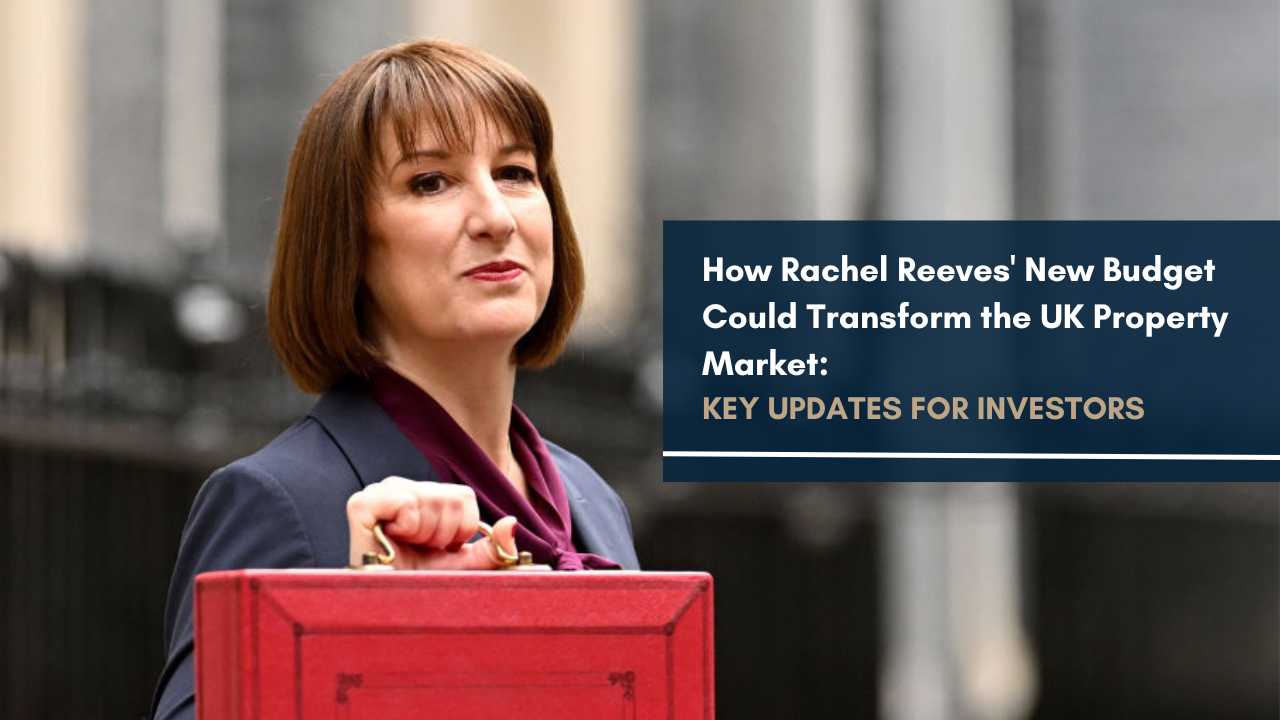Last updated: October 2023
In the UK, buying a property “off-plan” means purchasing it before development is complete. When purchasing off-plan, some investors will pay a deposit before the project even begins, although most wait until building work is underway first.
If you’ve never bought off-plan before and you’re considering it for the first time, we’ll explain the key benefits of this approach. We’ll also explore three key risks to consider, and explain how you can reduce them, before helping you decide whether investing in an off-plan property is the right choice for you.
Critics sometimes regard off-plan properties as too risky or too slow to make a return. But, as a company that specialises in buy-to-let property, we know that looking off-plan is often one of the best ways to get a step ahead of the market if you’re willing to be patient.
So let’s dive in.
What Are The Benefits Of Off-Plan Property?
The benefits of buying an off-plan property are as follows:
- Discounted prices
- Capital growth during construction
- More choice
- Customisable units
- Developer incentives
- Brand-new property built to high standards
- Interest on deposits
Let’s take a look at each of these points in detail.
Discounted prices
Lower prices are the most appealing aspect of buying an off-plan property in the UK. Property developers will usually offer residential units at a discounted sale price to try and entice new buyers.
Discounts can sometimes reach up to 25% below market value under these schemes. Hence, you can save money on your purchase and enjoy a higher return on investment when you sell or rent later.
Capital growth during construction
On average, property prices tend to increase over time.
So while you wait for the project to complete, the property market will continue to develop. This means the value of your off-plan property may be higher when the project is completed than when you bought it.
And that’s where the discounted price really comes up trumps. Let’s say the property was worth £200,000 when you bought it, but you had a 10% discount from the developer, bringing it down to £180,000. You’re already looking at a £20,000 profit if you were to sell immediately.
But consider the local property prices have all increased 10% during the course of the development. Your £200,000 property is now worth £220,000 on the open market.
Instead of £20,000, you could now make £40,000 by selling.
More choice
Another substantial benefit of buying off-plan property is that it gives you exclusive access to properties and locations that are not otherwise available on the resale market. Housing stock in the UK is limited, with demand far outstripping supply. So by only looking for ready-to-rent properties on the resale market, you’re limiting yourself to a small, very competitive market.
Meanwhile, there’s less competition for off-plan property, meaning you have more choice. Developers will let you choose your unit, so if you want a fancy corner apartment with panoramic views over the city, you can get it.
You’ll also have more choice over location. On the resale market, you’re limited to whoever decides to sell, so you have to wait or look elsewhere if nothing new is coming onto the market. Meanwhile, new builds are going up all over the UK’s major cities, typically as part of regeneration plans backed by local authorities, so by going off-plan you can secure a new property in a desirable location, whether it’s the city centre or a trendy suburb.
Customisable units
Customising properties to your requirements is also a benefit of off-plan developments. Developers often allow you to have some input into the design and finish of your property.
For instance, you can often choose your own fixtures and fittings, such as flooring, tiles, kitchen units, or appliances, depending on the stage of construction and the developer’s policy. Sometimes, you can also request layout changes, though you’ll need to submit these early in development for approval.
Customisations could help boost tenant interest in the property further down the line, or a better quality finish may be able to generate a higher rental price.
Developer incentives
Incentives and schemes offered by the developer are also a benefit of buying an off-plan property in the UK. Depending on the developer and the project, these may include stamp duty relief, free legal fees, or furniture packages.
Brand-new property built to high standards
It can’t be overstated how beneficial brand-new properties are for landlords.
As long as you choose a reputable, trustworthy developer, you can be confident it will be finished to an excellent standard, ready-to-let without any further work required. And it will come with a warranty in case anything goes wrong. That’s not only great for you, but it means your tenants get a fresh and clean environment with modern features and amenities.
Compare that to buying a much older property on the open market. Old properties always come with problems, whether it’s mould, faulty appliances, scuffed walls, or something else. Not only will you be responsible for fixing these issues, but they will reduce the price you can set and the level of tenant interest.
Buying off-plan also means your property will meet high quality, safety, and energy efficiency standards, as a new build has to comply with strict building regulations and codes of practice.
Interest on deposits
And if all that wasn’t enough, then the final benefit is that your deposit will often earn interest over the construction period. Your interest will be set aside by the developer and then deducted from your final payment.
This can, potentially, shave a few thousand off the price. For example, 20-25% deposits are common on off-plan properties. So let’s say for a £200,000 property, you might put down £50,000. If you earn 3% interest over a two-year construction period, you’re looking at £3,000 in interest – a substantial saving by any measure.
The Risks Of Buying A Property Off-Plan
Of course, there are risks with off-plan properties. There are three main risks to consider, which are:
- Delays
- Quality issues
- Developers going out of business
However, you can mitigate all these risks. So let’s take a look at each and see what you can do to minimise the chance of an issue.
Delays
In any construction project, delays are inevitable. The construction timeline may not proceed as planned because of shortages of materials, labour, financing permits or something else entirely. For example, the weather can sometimes play a major role.
A delay in the project will mean a setback in getting a tenant into the property and starting to earn a return on your investment. That’s not ideal for any investor, but the best way to combat this risk is to review a developer’s track record before buying. Do they regularly complete on time or are they often well over the expected completion date?
No developer will be perfect, but you should be looking for one that meets their deadlines more often than not.
Quality issues
There’s a risk that the project won’t be finished to the right standard. The completed property may not match the expectations of the buyers or the standards promised by the developer, perhaps due to issues in the construction or design.
This could cause issues with tenant interest, and may even block you from renting the property at all (particularly if there are any safety concerns).
Fortunately, such problems are rare, again it comes down to due diligence and picking your project carefully. You want a development company that’s known for the quality of their finish, offers a warranty and has a clear policy on remedial work.
Developers going out of business
Unfortunately, developers can go bust during construction due to a lack of financing from investors or creditors. This is extremely rare. But it could mean you lose your deposit and any other money invested into the project.
To avoid this risk, you should work with an established developer with an excellent reputation and only look for projects that offer deposit protection insurance. So even if the worst should happen and the developer fails, you’ll have only lost your time, not your money.
Should you invest off-plan? Is it right for you?
Whether you should invest in off-plan property developments is a personal decision. Off-plan developments can be a good investment option for landlords looking for long-term growth and returns. However, they involve a higher level of risk than buying a completed property.
Therefore, you should weigh the pros and cons of buying off-plan and make an informed decision. Think about your risk tolerance, willingness to wait for construction to finish, and the type of properties you most want to manage. Also, consider whether a warranty is valuable to you or if you would prefer to maintain an older home out-of-pocket. Will additional rental income cover any losses?
To help guide your decision, we’ve written a post: 10 Questions To Ask When Buying Off-Plan Property
How to invest in an off-plan property?
If you’re a property investor and you’re looking to buy an off-plan property in the UK, here’s what you need to do:
- Do your research. Before any money changes hands, do thorough research on the developer, the location, the market, and the legal aspects of the deal. Make sure the developer has a track record of delivering units on time.
- Secure the proper financing. Ensure you have enough money. An off-plan purchase usually requires a deposit of 10% to 30% of the purchase price.
- Negotiate the best deal you can. Discuss the price, incentives, specifications, and extras with the developer and see what else they’d be willing to give you.
- Monitor the progress of the deal until completion. Keep in touch with the developer and your solicitor and get regular updates on the construction status. If there are delays, follow up and find out what the problem is.
- Manage the property effectively. Find a reliable letting agent and property managers to take care of your property if you want passive income, or use tried-and-tested methods if you intend to work as a landlord.
For more advice, check out our post: 5 Tips For Investing In Off-Plan Property
Conclusion
Ultimately, off-plan property investments can be a lucrative and relatively safe option for property investors looking for high-quality accommodation long-term. While there are risks, you can easily mitigate them with the proper insurance, planning, and developer relationships.
But if you need expert help, we’re here. We’re a group of property investment specialists, who can help you find a suitable project for your budget, risk appetite, and goals. We can guide you through the investment process from start to finish, and we don’t cost you a penny. Just get in touch with our team to get started.


































